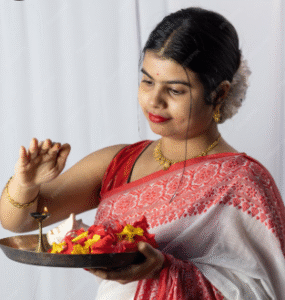
Credit: Instagram
On 24 April 2025, Misha Agrawal, a rising digital content creator and entrepreneur, died by suicide in New Delhi.
She passed away just two days before her 25th birthday, leaving behind thousands of shocked fans, friends, and family members. Her death was publicly confirmed through a family statement shared on her official Instagram page, where she had amassed over 350,000 followers.
Initial reports from multiple outlets, including India Today and Hindustan Times, linked her suicide to a dramatic dip in social media followers. Her sister later revealed that Misha had been feeling “worthless” due to declining engagement on her Instagram profile.
Misha’s story has sparked a national conversation about the silent mental health struggles faced by influencers behind their seemingly perfect online lives. It has also reignited urgent questions about the role of social media platforms, the pressure of digital growth, and society’s obsession with virtual validation.
Who Was Misha Agrawal?

At just 24 years old, Misha Agrawal, a brilliant young mind, had built an identity on Instagram, known widely for her relatable situational videos. Her content, often humorous and sharply observant, resonated with young Indians navigating urban life, beauty trends, and daily struggles.
But Misha’s life was not limited to filters and captions. She held a law degree and was preparing for the competitive Provincial Civil Services – Judicial (PCSJ) examinations. Balancing academic goals with her influencer life, she had also launched her own beauty label, Mish Cosmetics. The brand quickly gained attention for its affordable, inclusive product range and Misha’s hands-on marketing style.
Her Instagram feed told the story of a confident, well-groomed young woman building a personal brand. But behind that digital confidence was someone under constant pressure to prove her worth in numbers, likes, views, shares, and most significantly, followers.
Check out our another published trending news: Mock Drills on May 7, 2025: What You Need to Know
As her sister revealed after her passing, Misha had tied much of her self-worth to these metrics. When those numbers began to drop, she no longer saw her achievements as meaningful, despite her real-world successes.
Social Media Reactions on the Death of Misha Agrawal
Once again, a young mind failed by chasing numbers. The way the young generation puts their trust, validation, and happiness in the “likes” of strangers over the internet makes their dream of “becoming successful” really questionable. In this tough time, Misha’s family wants privacy, strength and courage to deal with the loss. And, the team behind Mish Cosmetics shared their deep condolences on Misha’s Instagram as well.

“Social media is truly a terrible place, I stopped Instagram cause of it, only cause I always felt everyone there is better than me physically, lookwise and even has a perfect life, which gave me FOMO really bad. And I was too insecure at that point, so we need to realise how social media is a terrible place,” said a Reddit user regarding Misha Agrawal’s unfortunate death.
In another Reddit thread, people all over the world showed empathy for this incident. Few have commented that they had no clue about her mental health, as her humorous content tells a different story. Find out the full thread below:
Misha committed suicide?
byu/Socialgirl1 inInstaCelebsGossip
“Pink” Actress Taapsee Pannu’s Reaction
Misha Agrawal’s death did not go unnoticed by the entertainment industry. Among the first to react was actor Taapsee Pannu, who expressed her sorrow and concern on social media.
In a post that quickly went viral, Pannu said, “This is something I long feared… the desperate need of virtual love will blind you towards the real love around you.”
Her words struck a nerve with thousands, prompting discussions across platforms about the mental toll of life online. Many fellow creators and celebrities echoed her sentiment, pointing to the culture of constant comparison, algorithmic pressure, and the addictive pursuit of digital attention.
Pannu’s message was a warning. It captured the very essence of what Misha’s story represented: a generation lost in numbers, chasing an illusion of acceptance, often at the cost of mental health and personal relationships.
Public responses to Pannu’s post further revealed how widespread the problem really is. Young users shared their own experiences with burnout, validation anxiety, and the overwhelming need to “perform” on social media. The comments painted a sobering picture of emotional exhaustion hidden behind curated perfection.
Read also: 5 Effective Ways to Deal with Trauma
Mental Health Implications of Social Media: A Silent Struggle Behind the Screens
Misha Agrawal’s tragic death has intensified the spotlight on the psychological toll of social media, particularly among young influencers.
Dr. Rituparna Ghosh, a senior clinical psychologist at Apollo Hospitals in Navi Mumbai, has highlighted the dangers of self-diagnosing mental health issues based on social media content. She emphasises the importance of distinguishing between educational material and sensationalised content, cautioning against the reliance on memes or viral posts for understanding mental health conditions.
The relentless pursuit of likes, shares, and followers can lead to anxiety and depression. The constant comparison with curated online personas often results in feelings of inadequacy and low self-esteem. This phenomenon is not isolated.
“Your mental health is just as important as your physical health.”
But, young people often tend to neglect this, don’t they? As Dr. Ghosh notes, it’s crucial to build self-worth independent of online validation. Engaging in offline activities, cherishing real-life relationships, and seeking professional help when needed are vital steps toward mental well-being. These reflections serve as reminders that while social media can be a tool for connection, it should not define one’s self-worth or mental health.
Also Read: Panic Disorder: The Growing Problem Among Adults
How to Detach Yourself from Social Media Addiction?
Misha Agrawal’s story underscores the need to rethink our relationship with social media, not just as users but as individuals with emotional boundaries.
For many, the idea of “logging off” seems unrealistic, especially when their career, creativity, or community is tied to platforms. But healthy detachment doesn’t mean abandoning the internet altogether—it means regaining control over how it affects your time, mood, and self-esteem.
Here are science-backed and therapist-recommended ways to start detaching from social media addiction:
1. Set Screen-Time Limits and Stick to Them
Most smartphones allow you to track and limit app usage. Set daily time caps, especially for high-engagement apps like Instagram or TikTok. Use downtime modes in the evening to avoid endless scrolling before bed.
2. Turn Off Push Notifications
Constant alerts create a false sense of urgency and reinforce compulsive checking. Disable notifications for likes, comments, and DMs to reduce dopamine-driven impulses.
3. Schedule Social Media Check-ins
Rather than opening apps at random, schedule fixed time blocks for social media use. This shifts your behaviour from reactive to intentional.
4. Curate Your Feed Actively
Unfollow or mute accounts that trigger negative comparison. Follow pages that focus on mindfulness, education, humour, or real-life connection.
5. Reclaim Offline Joy
Invest in offline habits that bring meaning, like journaling, physical fitness, painting, or nature walks. These activities reconnect you with your real self, not the filtered version online.
6. Practice Digital Fasting
Try 24- or 48-hour social media detoxes weekly or monthly. These mini-breaks offer mental clarity and reduce emotional dependency.
7. Seek Therapy If Needed
If detaching from social media causes distress, anxiety, or depression, it’s okay to ask for help. Mental health professionals can offer tailored guidance and coping strategies.
Detaching is about drawing healthy boundaries between your online presence and your inner peace. Remember, therapy is no longer a stigma. Most importantly, if you are feeling “low”, know you are not alone. India is facing a new pandemic of poor mental health. To know more, don’t forget to watch the video below:






I have read some excellent stuff here Definitely value bookmarking for revisiting I wonder how much effort you put to make the sort of excellent informative website